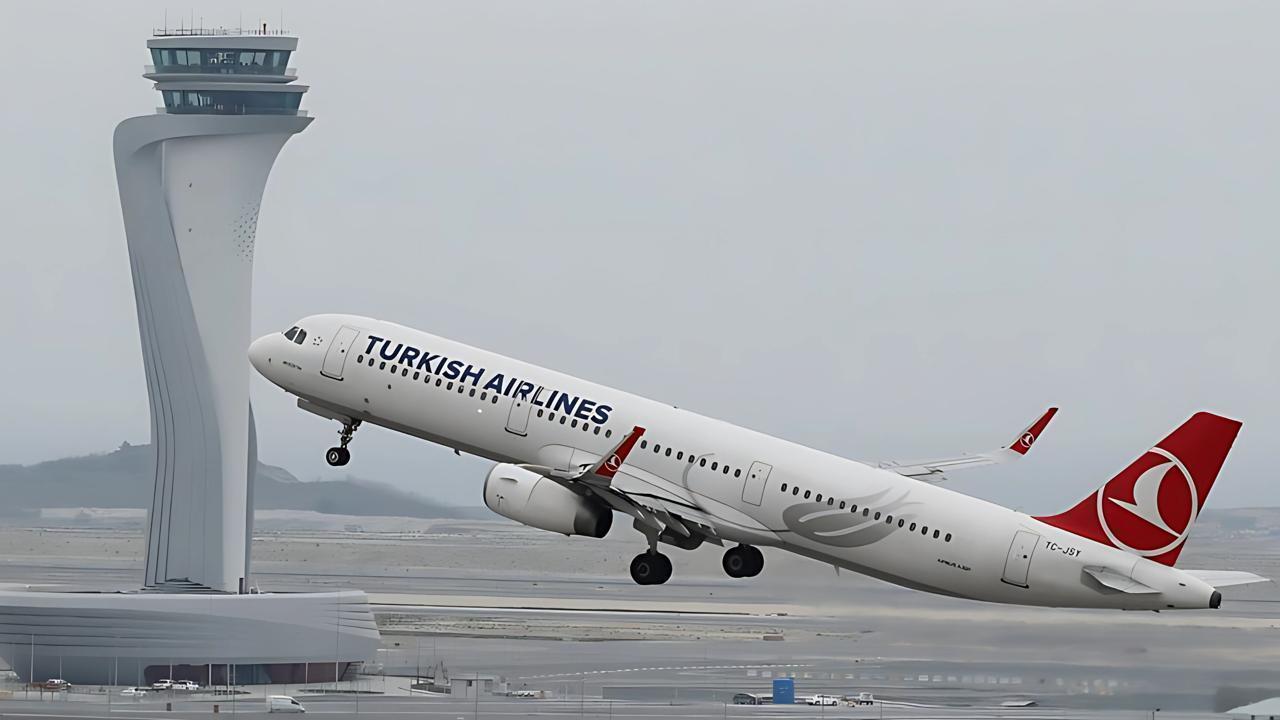
Post by : Amit
Photo: Reuters
Istanbul, June 2025 — In a strong signal of growth and ambition in the low-cost travel market, Turkish Airlines has announced the lease of 14 more Airbus A321neo aircraft to bolster the fleet of its rapidly expanding low-cost subsidiary, AJet. The move significantly strengthens AJet’s operational capacity as the carrier aims to scale up domestic and international routes from Turkey’s strategic aviation hubs.
The aircraft will be leased through various international lessors and are expected to be delivered over the next 18 months, beginning in late 2025. The latest fleet expansion follows a wave of aviation optimism in Turkey and reflects Turkish Airlines’ strategic pivot to capture a larger share of price-sensitive and short- to medium-haul markets through its dedicated LCC arm.
Formerly known as AnadoluJet, AJet was rebranded in early 2024 and relaunched as a fully independent low-cost carrier under the Turkish Airlines Group. Operating from both Istanbul Sabiha Gökçen Airport and Ankara Esenboğa Airport, AJet is tasked with driving growth in high-density regional routes and cost-conscious markets across Europe, the Middle East, and Central Asia.
With the addition of 14 more A321neos, AJet is on track to become one of the most formidable LCCs in the wider EMEA region. The aircraft type is known for its superior fuel efficiency, reduced emissions, and higher seating capacity—perfectly suited for AJet’s mission to offer affordable, reliable, and environmentally responsible air travel.
The Airbus A321neo has emerged as the aircraft of choice for global carriers looking to modernize fleets while maximizing seat-mile efficiency. For AJet, the type offers:
The aircraft also shares commonality with the existing A320 family fleet within Turkish Airlines, streamlining training, maintenance, and crew operations.
Turkish Airlines’ aggressive fleet strategy for AJet is part of a larger plan to compete head-on with other major low-cost players such as Pegasus Airlines, Ryanair, and Wizz Air—all of which have ramped up operations in the Eastern Mediterranean and Gulf regions.
AJet's model blends traditional LCC cost structures with Turkish Airlines' operational expertise, giving it a unique edge in both customer experience and network depth. The airline is targeting underserved point-to-point routes and secondary European airports, which have seen a resurgence in demand since post-pandemic travel patterns shifted toward leisure and value-focused flying.
Industry analysts see this fleet move as a vote of confidence in Turkey’s aviation market, which continues to benefit from geographic advantage, tourism recovery, and increasing transit traffic.
The 14 new A321neos will push AJet’s fleet to more than 50 aircraft by 2026, with further growth anticipated if market demand holds. Turkish Airlines has hinted at more aircraft leases or potential direct orders in the future, especially if AJet’s financial and operational performance meets current projections.
Meanwhile, the carrier is investing in digital booking platforms, ancillary revenue streams, and lean ground operations—all key components of a sustainable LCC model.
Istanbul travel market










Advances in Aerospace Technology and Commercial Aviation Recovery
Insights into breakthrough aerospace technologies and commercial aviation’s recovery amid 2025 chall

Defense Modernization and Strategic Spending Trends
Explore key trends in global defense modernization and strategic military spending shaping 2025 secu

Tens of Thousands Protest in Serbia on Anniversary of Deadly Roof Collapse
Tens of thousands in Novi Sad mark a year since a deadly station roof collapse that killed 16, prote

Canada PM Carney Apologizes to Trump Over Controversial Reagan Anti-Tariff Ad
Canadian PM Mark Carney apologized to President Trump over an Ontario anti-tariff ad quoting Reagan,

The ad that stirred a hornets nest, and made Canadian PM Carney say sorry to Trump
Canadian PM Mark Carney apologizes to US President Trump after a tariff-related ad causes diplomatic

Bengaluru-Mumbai Superfast Train Approved After 30-Year Wait
Railways approves new superfast train connecting Bengaluru and Mumbai, ending a 30-year demand, easi